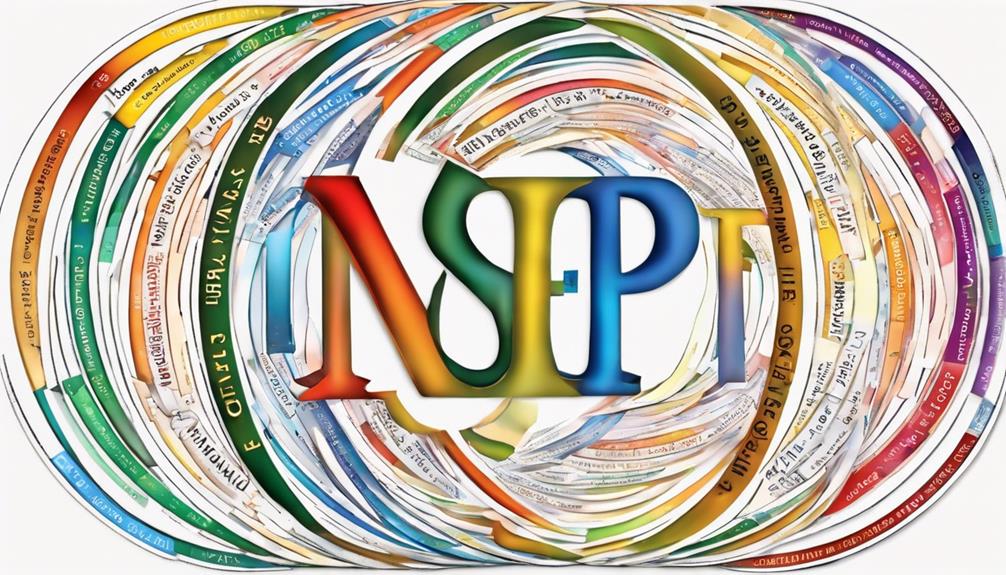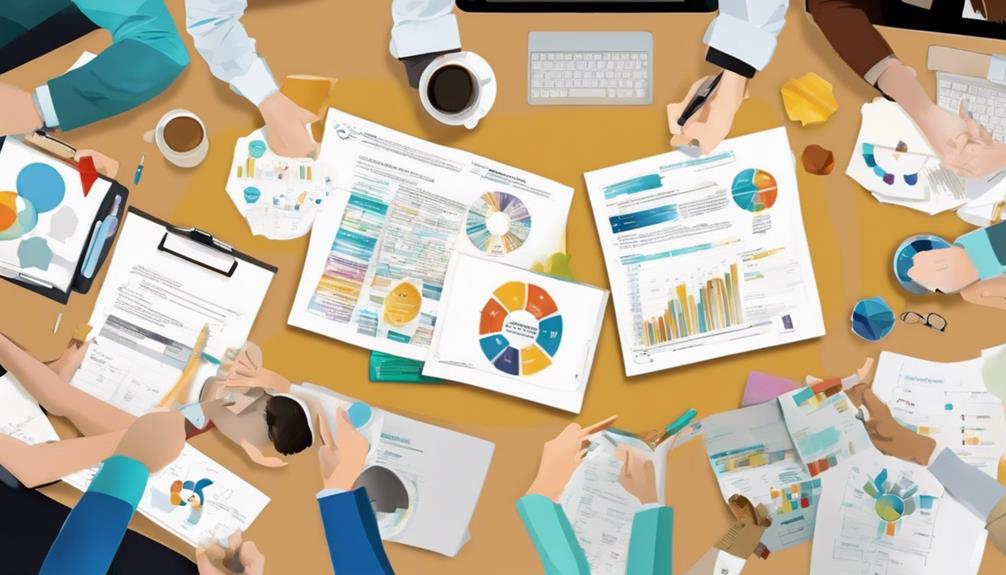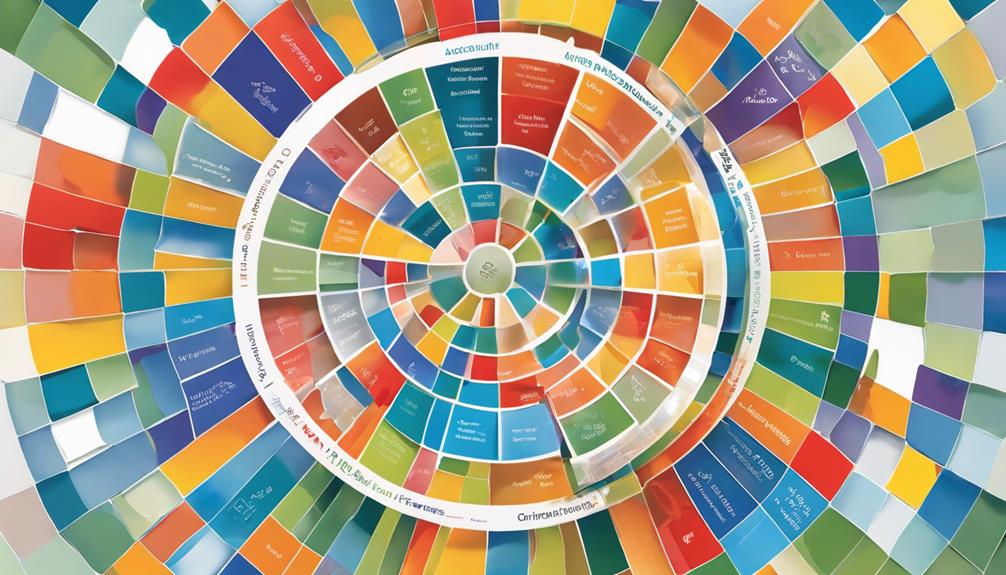When comparing DISC Assessment and Myers-Briggs, it’s akin to exploring different pathways through the complex realm of personality assessment. These tools, each with their own intricacies, provide valuable understanding of human behavior and relationships.
However, the question remains – which path leads to a clearer understanding of oneself and others? Let's explore the intricacies of each assessment to uncover the key differences that set them apart and determine which might better suit our individual or organizational needs.
Key Takeaways
- DISC Assessment focuses on behavior and communication, while Myers-Briggs centers on cognitive processes.
- DISC Assessment is practical and flexible, whereas Myers-Briggs is stable and theoretical.
- DISC Assessment is widely used in business settings, while Myers-Briggs is common in personal and educational settings.
- DISC Assessment acknowledges personality trait fluidity, while Myers-Briggs results in a unique four-letter code.
Overview of DISC Assessment
Grounded in William Moulton Marston's theories of human emotions and behavior, the DISC assessment is a powerful personality assessment tool. With 20-30 questions, users can efficiently determine their DISC personality types, which are categorized into Dominance, Influence, Steadiness, and Compliance. The concise nature of the assessment enhances user engagement, making it an accessible tool for understanding oneself.
The DISC assessment provides a structured framework for individuals to comprehend their behavioral tendencies. Results are delivered in a user-friendly format, aiding in the interpretation of complex psychological concepts. This assessment acknowledges the fluidity of personality traits, recognizing that individuals may exhibit different characteristics in various situations. Such flexibility promotes adaptability in behaviors and communication styles, offering a comprehensive understanding of one's personality dynamics.
Overview of Myers-Briggs

Building upon the foundation of personality assessments, the Myers-Briggs Type Indicator (MBTI) offers a comprehensive framework for understanding individual preferences and behaviors. The MBTI, developed by Katharine Cook Briggs and Isabel Briggs Myers, originated from Carl Jung's theories in 1921. This personality assessment tool was first published in 1962 and involves participants answering up to 90 questions to determine their personality type. The MBTI categorizes individuals into four dimensions: Extraversion/Introversion, Sensing/Intuition, Thinking/Feeling, Judging/Perceiving, resulting in a unique four-letter code that represents their personality type.
| Myers-Briggs Type Indicator (MBTI) | Description | Usage |
|---|---|---|
| Origin | Developed from Carl Jung's theories by Katharine Cook Briggs and Isabel Briggs Myers in 1921 | Widely used in academic, personal, and educational settings |
| Publication | First published in 1962 | Offers deep self-knowledge and insights |
| Dimensions | Extraversion/Introversion, Sensing/Intuition, Thinking/Feeling, Judging/Perceiving | Helps individuals understand their preferences and behaviors |
A Comparative Analysis
In comparing the DISC assessment with the Myers-Briggs Type Indicator (MBTI), it becomes evident that these two tools offer distinct approaches to understanding personality traits and behaviors. Here are some key points to consider:
- DISC focuses on behavior and communication, while Myers-Briggs centers on cognitive processes.
- DISC offers a more practical and action-oriented approach compared to Myers-Briggs' theoretical nature.
- DISC is flexible and situational, while Myers-Briggs is stable and consistent.
- DISC is widely used in business and leadership contexts, while Myers-Briggs finds more application in personal and educational settings.
- Understanding the contrasts between DISC and Myers-Briggs aids in choosing the most suitable assessment for specific needs.
Analyzing these differences can provide valuable insights into which assessment tool might be best suited for particular situations, whether in a professional or personal context.
Application in Various Settings

Application of DISC assessments and Myers-Briggs assessments varies significantly across diverse professional and personal contexts. DISC assessments find their primary application in workplace settings, focusing on enhancing team dynamics, leadership skills, and communication effectiveness. On the other hand, Myers-Briggs assessments are commonly used in personal growth, career counseling, and educational environments to aid individuals in understanding their cognitive processes and making informed decisions.
Below is a comparison table highlighting the key differences in the application of DISC assessments and Myers-Briggs assessments in various settings:
| Settings | DISC Assessments | Myers-Briggs Assessments |
|---|---|---|
| Workplace | Team building, leadership development, communication | Understanding individual cognitive processes |
| Personal Growth | Limited focus on personal growth | Emphasis on self-awareness and decision-making |
| Career Counseling | Enhancing workplace dynamics | Providing insights for career choices and development |
| Educational Environments | Improving communication styles | Aiding in understanding learning preferences and styles |
Both assessments offer valuable insights tailored to their respective settings, with DISC emphasizing practical applications in professional contexts and Myers-Briggs focusing on personal growth and self-awareness.
Choosing the Right Tool
When deciding between the DISC assessment and the Myers-Briggs assessment, individuals should carefully evaluate their specific needs and preferences to choose the most suitable tool for gaining insights tailored to their context.
Consider the primary focus of each assessment: behavior and communication styles for DISC, cognitive processes and information processing for Myers-Briggs.
Evaluate the application setting: business and leadership contexts for DISC, personal and educational settings for Myers-Briggs.
Assess the stability and consistency versus situational flexibility offered by each tool.
Reflect on the practical, action-oriented nature of DISC versus the theoretical and conceptual approach of Myers-Briggs.
Understand how the differences in these assessments align with your personal goals and the outcomes you aim to achieve in your assessment journey.
Frequently Asked Questions
How Is DISC Different Than Myers-Briggs?
We find that DISC emphasizes behavior and communication styles, while Myers-Briggs delves into cognitive processes. DISC is more flexible in varying contexts, whereas Myers-Briggs maintains stable categorization. Understanding these distinctions aids in choosing the right tool.
What Is One of the Major Differences Between the Myers Briggs Type Indicator and the Big 5 Personality Assessment?
One major difference between the Myers-Briggs Type Indicator and the Big 5 Personality Assessment lies in their theoretical foundations. While MBTI is rooted in Jungian cognitive processes and 16 personality types, the Big 5 assesses traits empirically across five dimensions.
What Is the Difference Between MBTI DISC and Big Five?
We discern that MBTI emphasizes cognitive processes, DISC focuses on behaviors, and the Big Five delves into broader personality traits. This distinction allows for tailored assessments that cater to specific needs and contexts effectively.
What Is the Difference Between Myers-Briggs and Insights?
Myers-Briggs delves into cognitive preferences, offering 16 personality types. Insights (DISC) examines observable behaviors, sorting individuals into Dominance, Influence, Steadiness, and Compliance traits. While Myers-Briggs explores decision-making, Insights (DISC) aids in communication adaptability.
Conclusion
In the realm of personality assessments, DISC Assessment and Myers-Briggs offer distinct lenses through which to understand ourselves and others. Like a versatile toolbelt, DISC provides practical insights for adapting to different situations, while Myers-Briggs acts as a sturdy foundation, delving deep into personal preferences.
Both assessments serve as valuable resources, each offering a unique perspective on human behavior and cognition. It's like having two different maps to navigate the complex terrain of personality.









